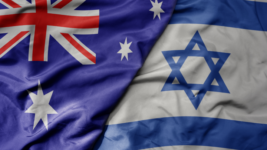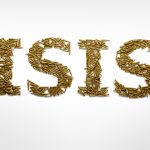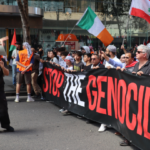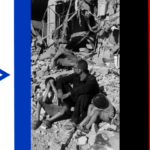Australians Fighting in Gaza Should’ve Been Warned of Potential Prosecution, Says Greg Barns SC

The Netanyahu government issued a 10 October 2023 call for its 360,000 army reservists to show up for military action it had launched in the Gaza Strip. And it’s understood that about 1,000 Australians with dual citizenship heeded the call and made the journey to partake in fighting.
Local headlines tended to praise Australians flying to join the assault on Gaza. A 13th October Herald headline read Australians fly to Israel to join war as Palestinians urged to flee to southern Gaza. And the globe now knows that fleeing south to Rafah only delayed the brutal attack currently transpiring.
But more recently, freedom of information releases reveal government departments were concerned about war crimes and genocide in Gaza early on, but rather than act to prevent this, staff were busily contemplating how to best avoid these subjects during press conferences.
And as this behind-the-scenes strategising was taking place, the government, again, didn’t seem to consider that it was beholden upon it to warn its own citizens that perpetrating such atrocities, or merely being complicit in them, could lead to potential prosecution on return to Australia.
The Australian Centre for International Justice wrote to federal attorney general Mark Dreyfus last December, outlining that there was a responsibility to advise these citizens of the possible ramifications, and further that it should investigate their actions on return.
As to the question of genocide, South Africa submitted a claim against Israel to the International Court of Justice in December, and on 26 January, the judges overwhelmingly ruled that what Israel is conducting in Gaza is plausibly the international crime of genocide.
Sydney Criminal Lawyers spoke to Australian Lawyers Alliance criminal justice spokesperson Greg Barns SC about the consequences that Australians fighting in Gaza could face on return, his concerns about the government’s actions and the media’s neglect of rising Islamophobia.

Over recent months, commentators, including yourself, have been raising the point that despite hundreds of Australian citizens having travelled to Israel at the behest of the Netanyahu government’s call to fight in Gaza, the federal government has stayed mum on the issue.
Rather, Labor appears not to have provided any advice to its citizens about potential consequences that could be brought to bear against them on their return.
Mr Barns, what should the Australian government have informed these soldiers about?
The first point I’d make is we’re not making any accusations against any Australian who has fought in the Israeli Defence Force.
But certainly, it is important for governments to ensure that people who want to fight in foreign countries, whether that is with Ukraine or with Israel or any other country, for that matter, that they understand the provisions of the Commonwealth Criminal Code, which incorporates into domestic law what is called the Rome Statute: the International Criminal Court’s statute.
That includes offences such as war crimes, crimes against humanity and genocide. And it applies to Australian citizens, including to alleged activities offshore.
We’ve seen it in operation, as it were, in relation to allegations, which are simply allegations, that have been made against Australian soldiers in Afghanistan.
Following the ICJ having ruled that Israel is plausibly conducting a genocide in Gaza in January, the Albanese government didn’t even publicly reflect on the ruling, let alone reach out to these citizens involved.
Do you consider that the court having found that a likely breach of the Rome Statute was occurring that it heightened the government’s responsibility to issue some sort of warning to Australians fighting in the Israeli military?
The broader issue here is the Australian government’s heeding of what the ICJ said, and the lack of preparedness to join with South Africa and now, a range of other countries, most recently Chile, in supporting the application to bring about some justice in the Gaza conflict.
And it has been disappointing to watch major powers, including middle powers such as Australia, to not join that particular action and those proceedings.
In relation to the issue of whether or not anyone could be liable because it has been said that there’s plausible evidence that genocide is being committed, you would have to look at each and every case.
Just because a person is in an area and participating in a conflict where there are allegations of crimes against humanity or war crimes, it does not mean that that person themselves is liable, or potentially liable, in criminal law.
It depends on particular actions. To go back to the example of Afghanistan, there were allegations made in relation to US troops and serious breaches of human rights that didn’t mean that Australian soldiers or any other nation that joined with the US in Afghanistan was responsible.
It depends on the individual.
Given government has understood that Australians are fighting with Israel, yet they haven’t acted in any way to advise them about their situation, is it likely that a case involving the Rome Statute offence would be launched against a returning soldier? How would one of these cases likely arise?
All of these charges require the consent of the attorney general to be proceeded. And that’s a quite a high threshold there: it is not simply the DPP but the attorney general that has to sign off.
Secondly, it really depends on whether or not there is some evidence produced. If you look at what has allegedly happened in Afghanistan, as we know through the David McBride case, for example, material was provided to the media.
And, of course, we’ve seen images of what has been alleged to be wrongdoing.
So, it really does depend on having some form of evidentiary basis in order to proceed against an individual.
The point we have been making is the Australian government would have been wise – and I assume it hasn’t done so – to indicate to those who do go to foreign lands into battle that they need to be very careful and make sure that they fully comply with Australian law.
As an aside, top government officials have been weaponising the charge of antisemitism in order to silence initially the pro-Palestinian street protests and later the university Gaza solidarity encampments.
This would appear to display ministers propagating disinformation in regard to what these activists stand for.
Is there a danger in the nation’s highest officials spreading these mistruths?
There is no doubt there has been some rise in antisemitism. The question is though, the extent to which that has been used to silence opposition to Israel.
And it is very easy to cast aspersions on others by saying they’re antisemitic. So, we need to be careful there.
There has also been, which hasn’t been commented on by the media, a very big rise in Islamophobia in Australia, and that has received very little media attention, despite the fact that Arab Australians have found life very difficult over the last few months.
That needs to be recognised.
There seems to be this sense that antisemitism is rife, but we seem to be forgetting about Islamophobia.
But it is important that labels are not used inappropriately in order to close down freedom of speech, freedom of expression and a right for people to stand against and express their views about inhumanity, war crimes and genocide, wherever it might be happening in the world.
And lastly, Mr Barns, the Labor government appears not only to have ignored the situation of Australian citizens partaking in the Gaza conflict, but it’s been avoiding discussions related to international court matters and the supply of arms to Israel.
Should our politicians be concerned that they will face legal consequences for their actions over the last eight months?
There has been some discussion in the UK context of the aiding and abetting action against the UK government.
The issue really is whether governments are signing off on export licences knowing that the exports that are being sent to Israel – either diverted through a third-party or directly to Israel – and the extent to which they know these are going to be quite likely used in the execution of what are alleged to be war crimes, crimes against humanity and genocide.
Now, the Australian government has indicated that it is a very small supplier of weaponry and defence products to Israel. And they’ve said there haven’t been any arms export approvals for some time.
What we don’t know, and we should know – it should be fully transparent – is what export licences they have signed off on.
For example, this could be software with dual purposes or equipment that has dual purposes. Have those licences been approved since this conflict began?
It is very important for the Australian government to be absolutely transparent about these licences.
Now they, of course, will rely on national security. But Australians are entitled to know the level of participation by the Australian government in terms of support for Israel.







